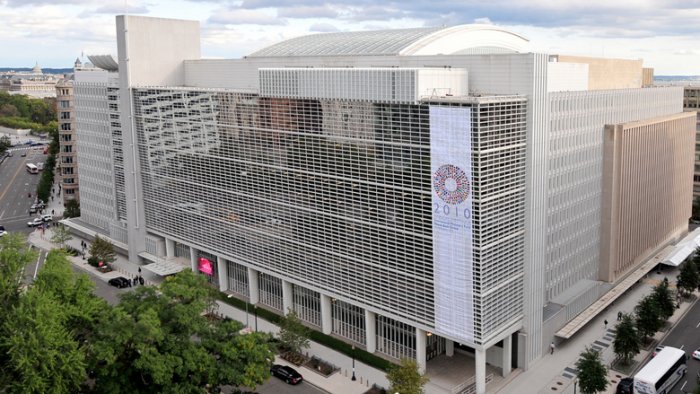World Bank predicts 4.1% growth in Hungary in 2018

world bank
The World Bank has released its latest Global Economic Prospects flagship report, which forecasts GDP growth in Hungary of 4.1% this year, and 3.2% in 2019. The report also highlights the risk of "a disorderly tightening of global financial conditions" in the region.
Despite recent softening, global economic growth will remain robust at 3.1% in 2018 before slowing gradually over the next two years, as advanced-economy growth decelerates and the recovery in major commodity-exporting emerging market and developing economies levels off, says the World Bank report.
Growth in emerging market and developing economies overall is projected to strengthen to 4.5% in 2018, before reaching 4.7% in 2019 as the recovery in commodity exporters matures and commodity prices level off following this year’s increase, the report notes, adding that the outlook is subject to major downside risks.
The possibility of "disorderly financial market volatility" has increased, and the vulnerability of some emerging market and developing economies to such disruption has risen, says the report. Trade protectionist sentiment has also mounted, while policy uncertainty and geopolitical risks remain elevated, it adds.
In Europe and Central Asia, growth is projected to moderate to an upwardly revised 3.2% in 2018 and edge down to 3.1% in 2019 as a modest recovery among commodity-exporting economies is only partially offset by a slowdown among commodity importers, the World Bank notes.
Growth in Russia is anticipated to hold steady at a 1.5% rate this year and accelerate to 1.8% next year as the effects of rising oil prices and monetary policy easing are offset by oil production cuts and uncertainty around economic sanctions, it adds.
Among commodity importers, the World Bank observes that inflation expectations are on the rise in Bulgaria, Croatia, Hungary, Poland and Romania, while inflation rates remain close to target in most of the countries of the region. Closing output gaps and fiscal policies are contributing to rising domestic inflation and widening current account deficits in Romania and Turkey, stresses the report.
Risks point to an escalation of policy uncertainty, which could dampen economic activity in the region, says the World Bank, adding that policy disputes among European Union members and EU institutions could deter international investors.
Finally, since the region is open to trade and is integrated into global supply chains, it may be vulnerable to a rise in global protectionism, the report notes.
SUPPORT THE BUDAPEST BUSINESS JOURNAL
Producing journalism that is worthy of the name is a costly business. For 27 years, the publishers, editors and reporters of the Budapest Business Journal have striven to bring you business news that works, information that you can trust, that is factual, accurate and presented without fear or favor.
Newspaper organizations across the globe have struggled to find a business model that allows them to continue to excel, without compromising their ability to perform. Most recently, some have experimented with the idea of involving their most important stakeholders, their readers.
We would like to offer that same opportunity to our readers. We would like to invite you to help us deliver the quality business journalism you require. Hit our Support the BBJ button and you can choose the how much and how often you send us your contributions.








